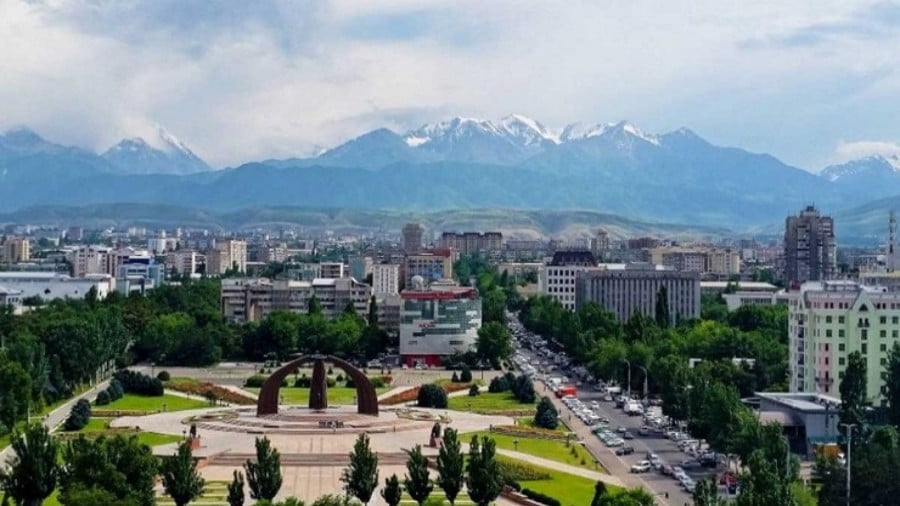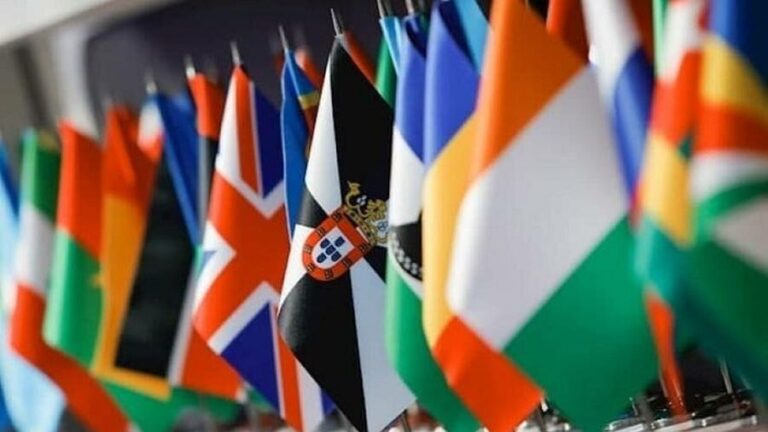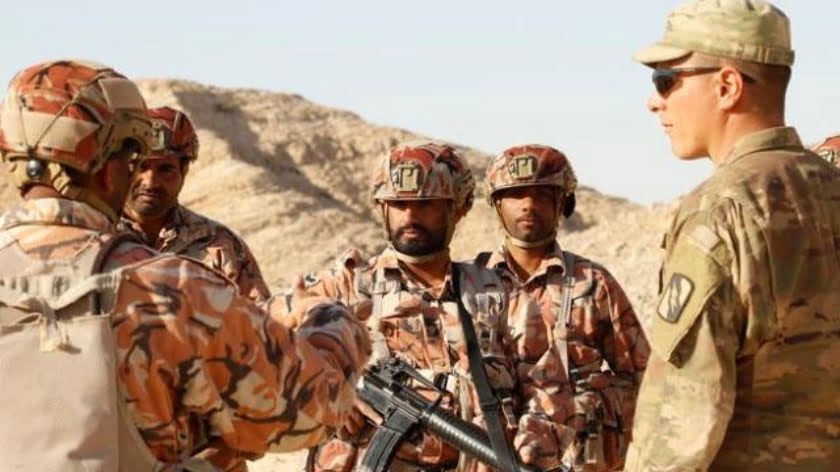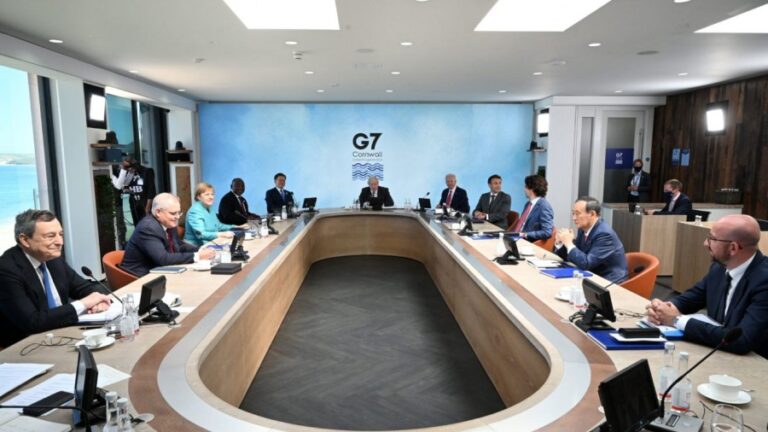Britain is Starting its own Game in Central Asia
For Britain, as for other Atlanticists, Central Asia (CA) has long been an area of key interest. To some extent, this is due to the region’s significant mineral reserves, as well as its strategic location as a bridge between Europe and Southeast Asia. That is why in recent years the West has been particularly active in trying to prevent the restoration of Russia’s strategic presence here, using this important base to put pressure not only on Moscow, but also on Beijing.
Britain’s exit from the European Union initiated an additional revision of London’s political and diplomatic priorities in accordance with the previously announced directions and existing trends towards a shift of the global political agenda to Asia. And in this context, London expects to pay particular attention to strengthening its position in Central Asia.
Britain began developing its own program of cooperation with the countries of Central Asia long ago. Ten years ago, the British Parliament established a group on the region, consisting of more than twenty members of the House of Lords and the House of Commons, and its strategy was based on strengthening economic and political-military cooperation with Central Asian countries. According to Lord Sheikh, a member of the Central Asian group, a British businessman and member of the Conservative Party in the United Kingdom Parliament, “the time will come when the crisis is over and the vast amounts of energy resources that most Central Asian states possess will surely be in demand.”
As stated in London, the concept of the European Union in Central Asia, adopted in 2007 and then repeatedly revised, does not fully meet the interests of many EU countries, including Britain. Therefore, London prefers to follow its own program of work in the region, with a special emphasis on developing relations and cooperation with individual Central Asian states. All the more so since Britain has long been developing cooperation with Kazakhstan, a de facto regional leader in whose oil and gas sector British Petroleum (BP) and British Gas (BG) operate. Britain has also been looking at hydropower in Kyrgyzstan, and has even discussed the issue of supplying equipment for Kyrgyz hydropower plants.
Therefore, it is not surprising that Kazakhstan, in whose oil and gas sector London is making multi-billion dollar investments, is still in the first place for Britain. There is also interest in Turkmenistan, where the British company Gaffney, Cline & Associates audited the South Iolotan-Osman field and confirmed the presence of solid hydrocarbon reserves there.
London’s interest in the region is undoubtedly due to the military-political aspect associated with the anti-terrorist operation in Afghanistan. And Britain, which became the main ally of the US in the Iraq and Afghanistan military campaigns, needs the rear support of the countries of the region. Therefore, there was serious interest in Uzbekistan, a key country in the region, which had already been involved more than once as a transit country in the Afghan campaign.
Drawing on its considerable imperial experience in using ethnic contradictions to expand its influence in a number of Asian states, this area of work in Central Asia is under Britain’s special control. Especially since for Central Asia, the Fergana Valley, and especially the border areas of neighboring states, is a potential source of ethnic instability.
Therefore, one of the main tools for consolidating and expanding its influence in this region, Britain has chosen to make active use of the extensive network of non-governmental organizations (NGOs) it has created and implanted in Central Asia. For example, since 2015, NGO activities in Kyrgyzstan and Tajikistan have been coordinated by British agencies, especially the British Department for International Development (DFID) and British intelligence services. Therefore, it is not surprising that observers have already noted the activities of such British NGOs as the Good Governance and Public Administration Strengthening program (GGPAS), which was funded by DFID and USAID, affiliated with US intelligence services, in the recent protest events in Kyrgyzstan. Its main “partners” were key government organizations and the Supreme Council of the Kyrgyz Republic.
In order to exert ideological influence on the population of Central Asia to London’s advantage, Britain actively uses NGOs working in the field of education. One such project is, in particular, the University of Central Asia, implemented by the Agha Khan Foundation (headquartered in London), which has branches in Kazakhstan (Tekeli), Tajikistan (Khorog), and Kyrgyzstan (Naryn). It is known, however, that the Ismaili spiritual leader himself, Agha Khan IV, represents a family with old ties to the British intelligence services and is an active agent of British policy. The Agha Khan Foundation has already been implicated in many Asian and African countries in preparing for ethnic clashes and establishing refugee camps. Agha Khan’s uncle, Prince Sadruddin Agha Khan (1933-2003), under the cover of the Foundation, conducted a number of particularly sensitive and secret operations abroad, seeking to keep them hidden from prying eyes, so as not to damage the Agha Khan’s reputation in international circles.
One such covert operation, conducted by US and British intelligence agencies with the help of Prince Sadruddin in the late 1980s and early 1990s, was called Salam. It was officially presented as a “humanitarian action” aimed at repatriation of Afghan refugees after the withdrawal of Soviet troops from Afghanistan. However, in reality, under the guise of humanitarian programs controlled by Prince Sadruddin, military and subversive training and the clandestine supply of weapons were carried out in the vicinity of the Afghan refugee camps on the Afghan-Pakistani border. Shortly before that, Prince Sadruddin had played an important role in another special secret operation of the intelligence services, called “Iran-Contras”, related to the secret sale of arms to Iran (the Reagan-Bush administration used the funds from this deal, unaccountable to the US Congress, to finance the activities of Nicaraguan “contras” and the Afghan mujahedin).
Equally important for Britain’s use of NGOs in Central Asia is “social research,” which in fact carefully monitors the sentiments of the region’s population, the involvement of radical Islamic influence, especially in the context of interethnic and inter-elite relations in specific countries, and the influence of Russia and China in the region. A striking example of this is the activities of the British NGO International Alert, which has been active in Kyrgyzstan and Tajikistan since 2014.
Another NGO, The Search For Common Ground (SFCG), funded by the British Ministry of Defense and Foreign Office, declares a Search for Common Ground project to supposedly prevent violent extremism in Kyrgyzstan and Tajikistan, but is in fact also engaged in close monitoring of the situation in these countries for the benefit of the US and British intelligence services.
Following its old imperial colonial policy, Britain actively participates in the “collective West’s” strategy of dividing the peoples of Asia along ethnic and ethno-religious lines, playing the inter-ethnic card in the Central Asian region in its interests. The realization of this, including the recent events in Kyrgyzstan, and the opposition to such subversion by Britain is already developing in many states in the region and will only intensify.







